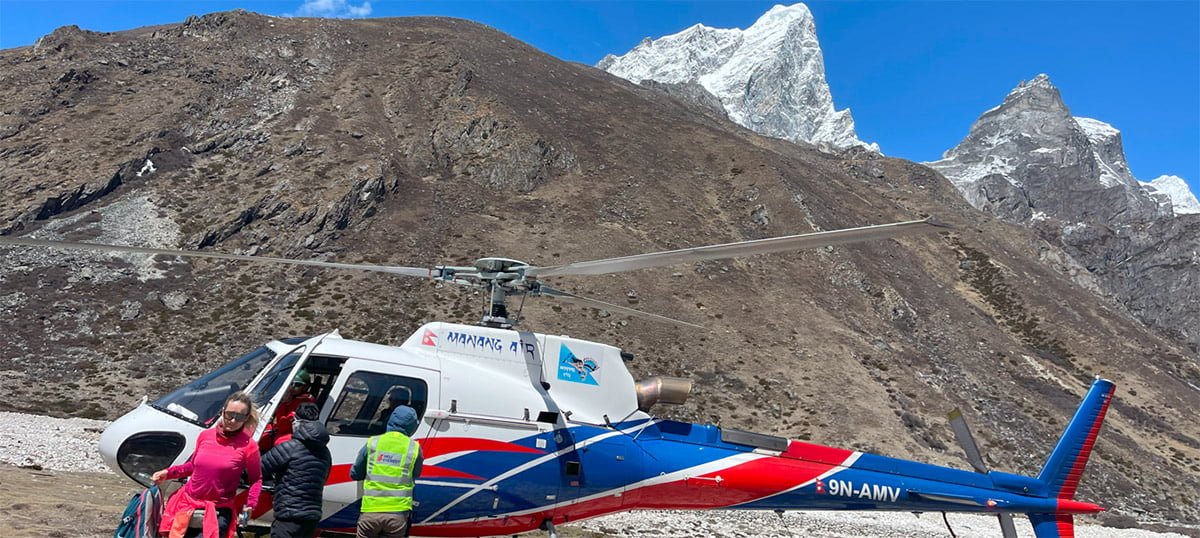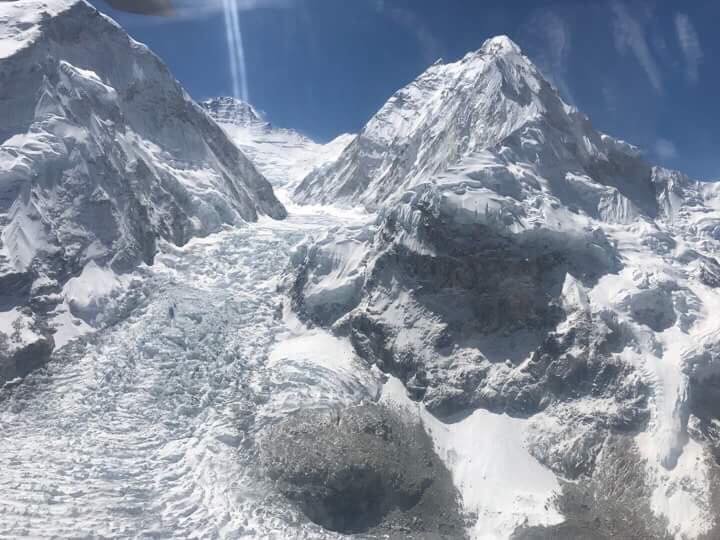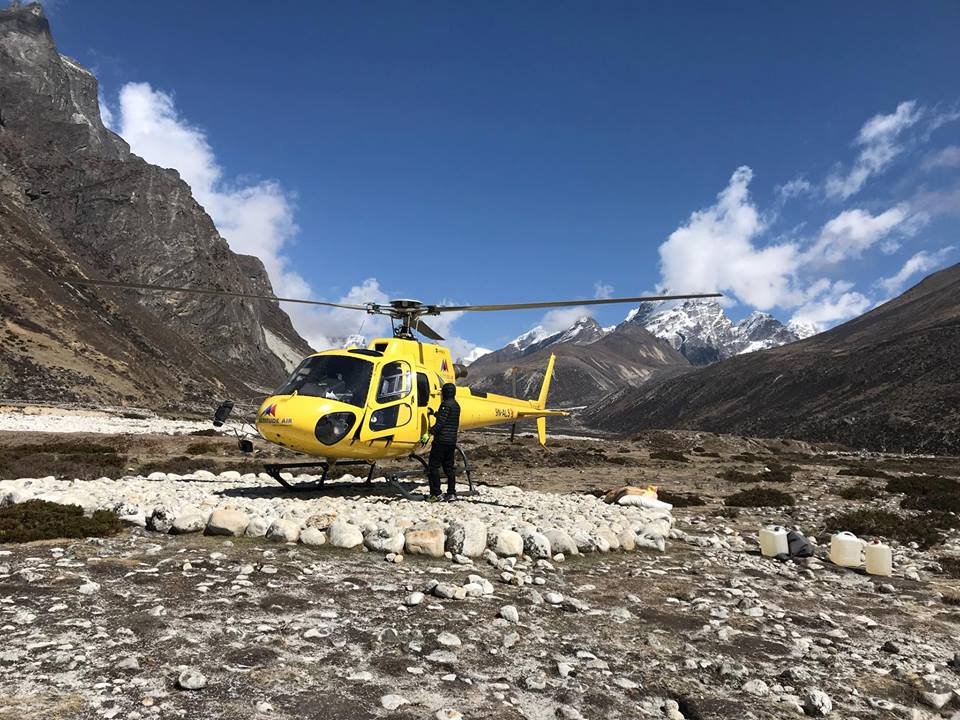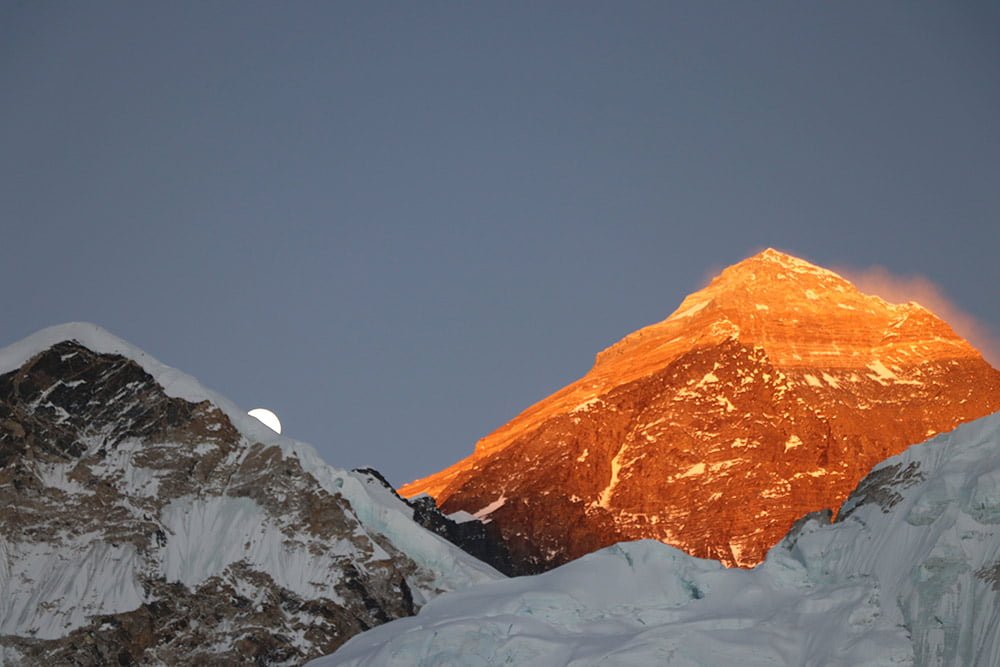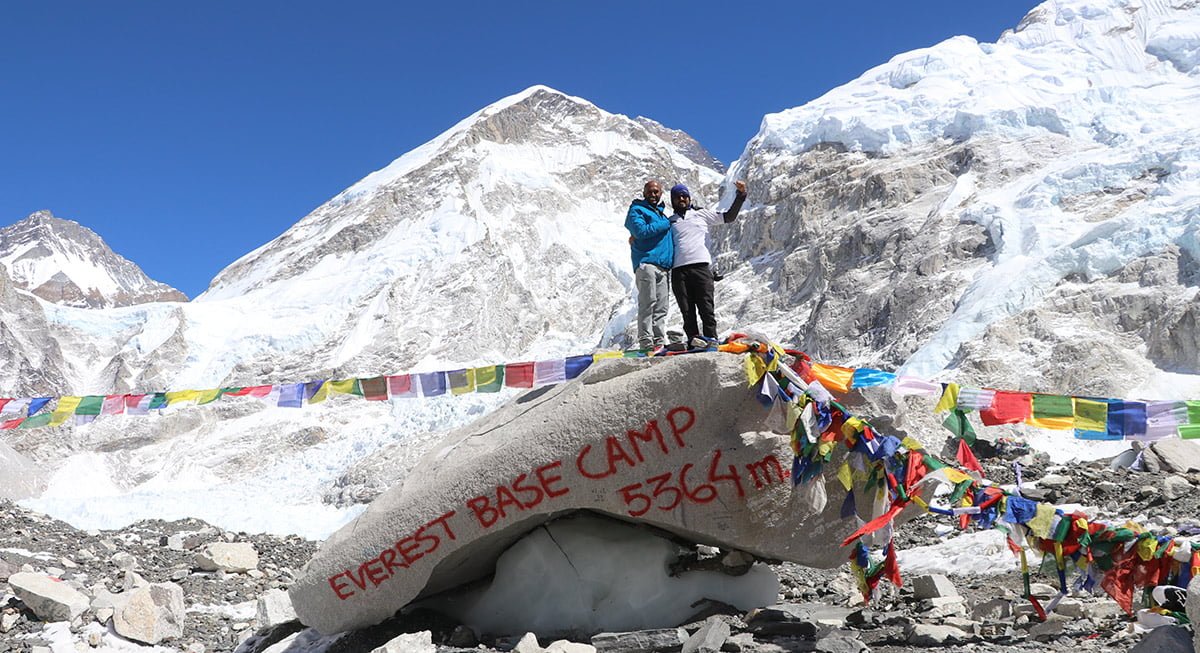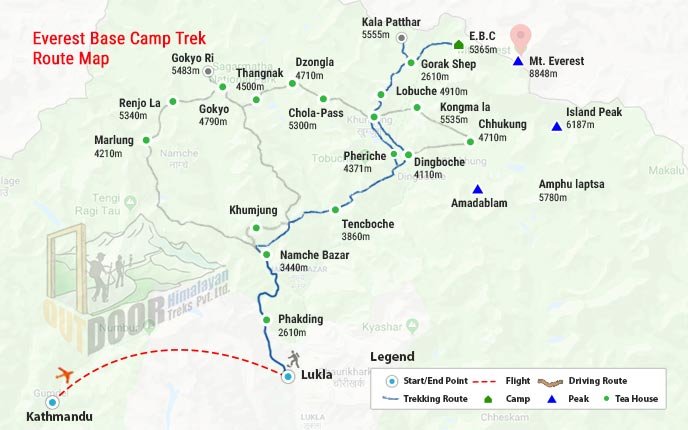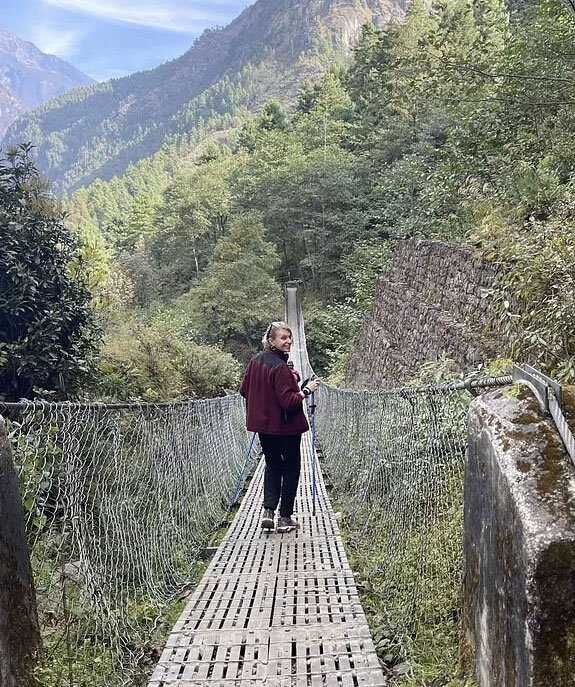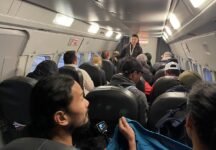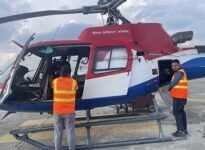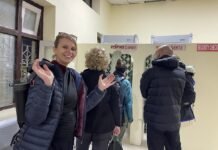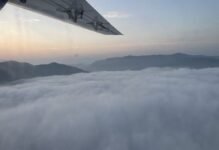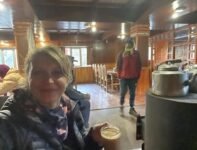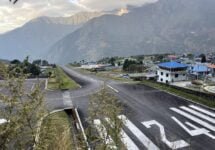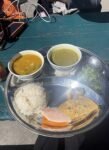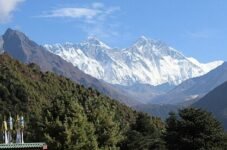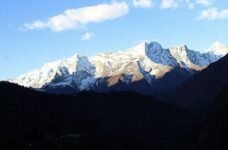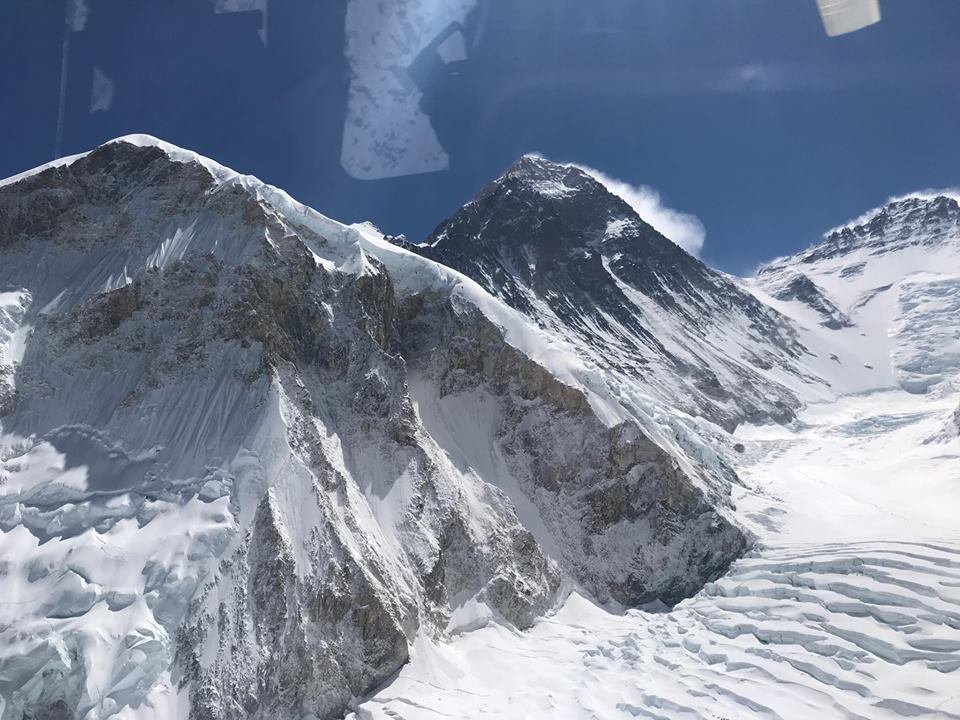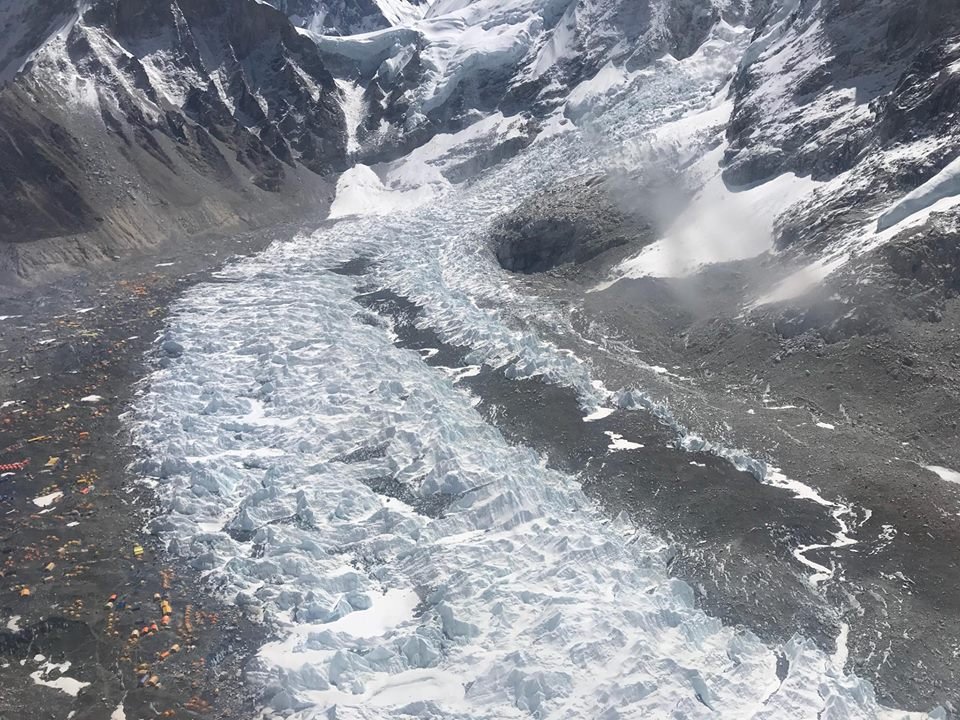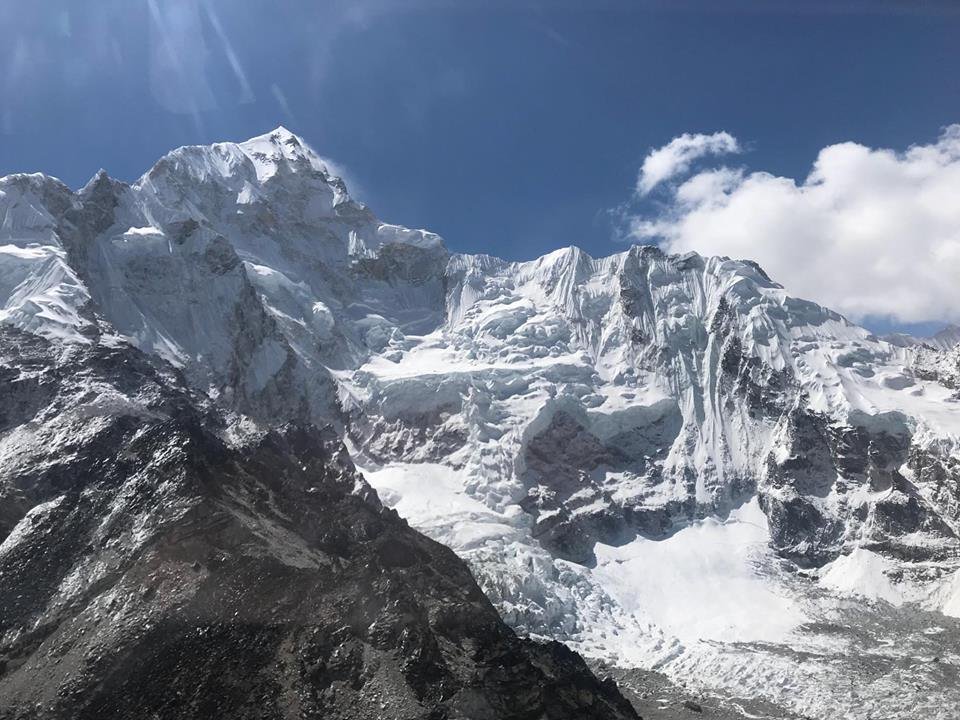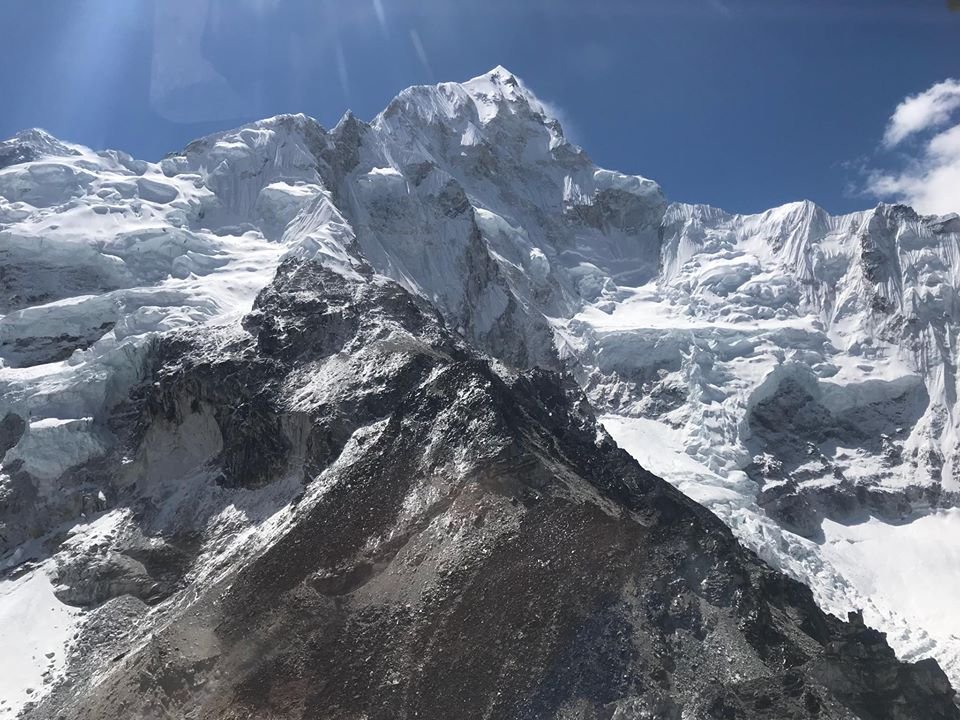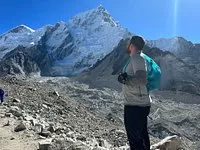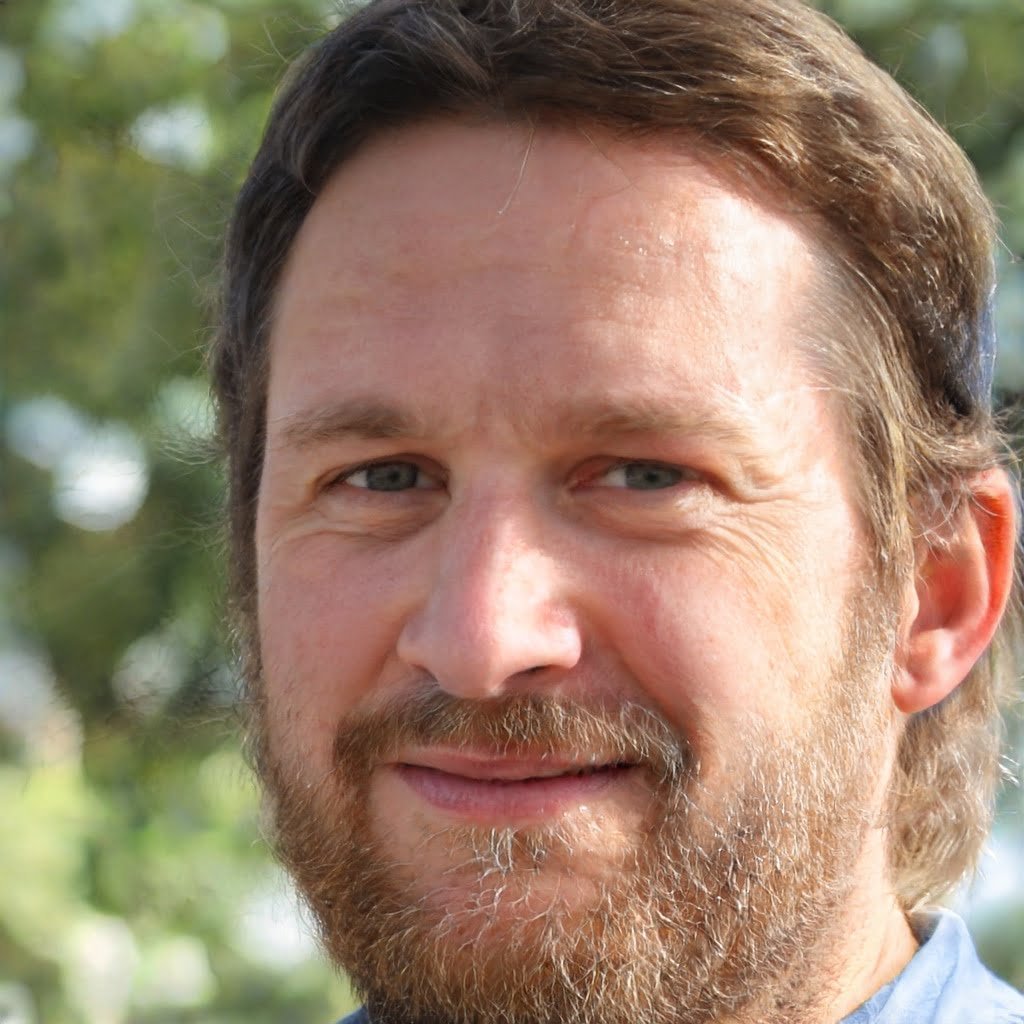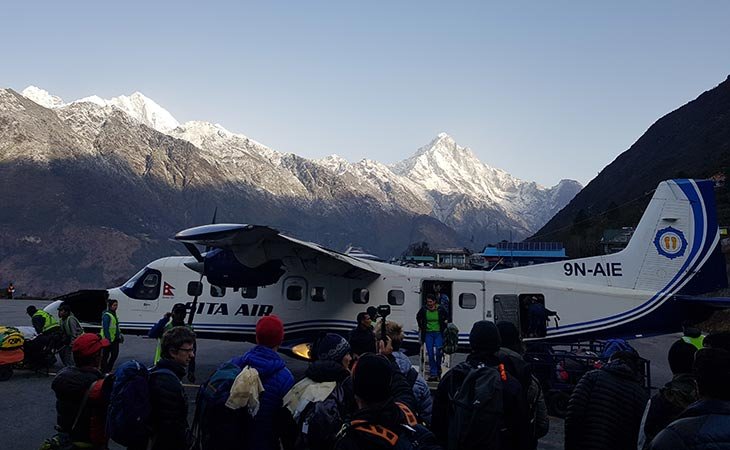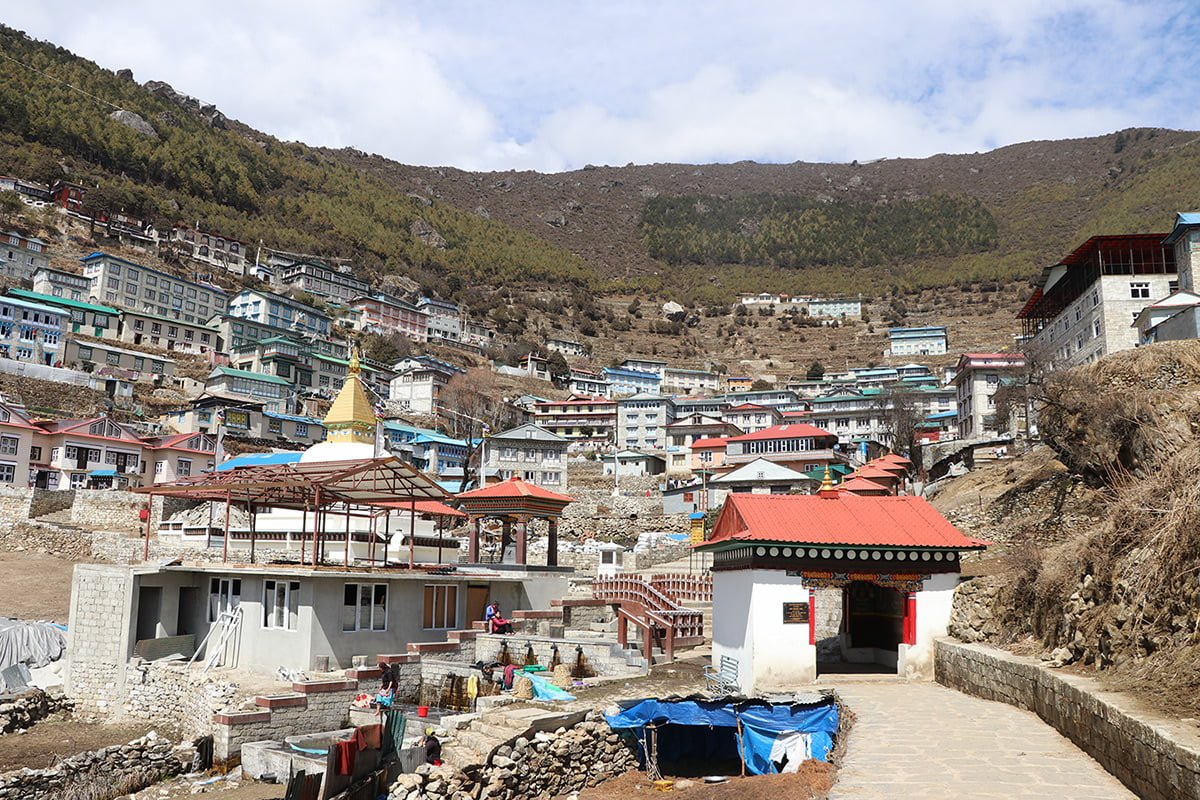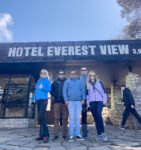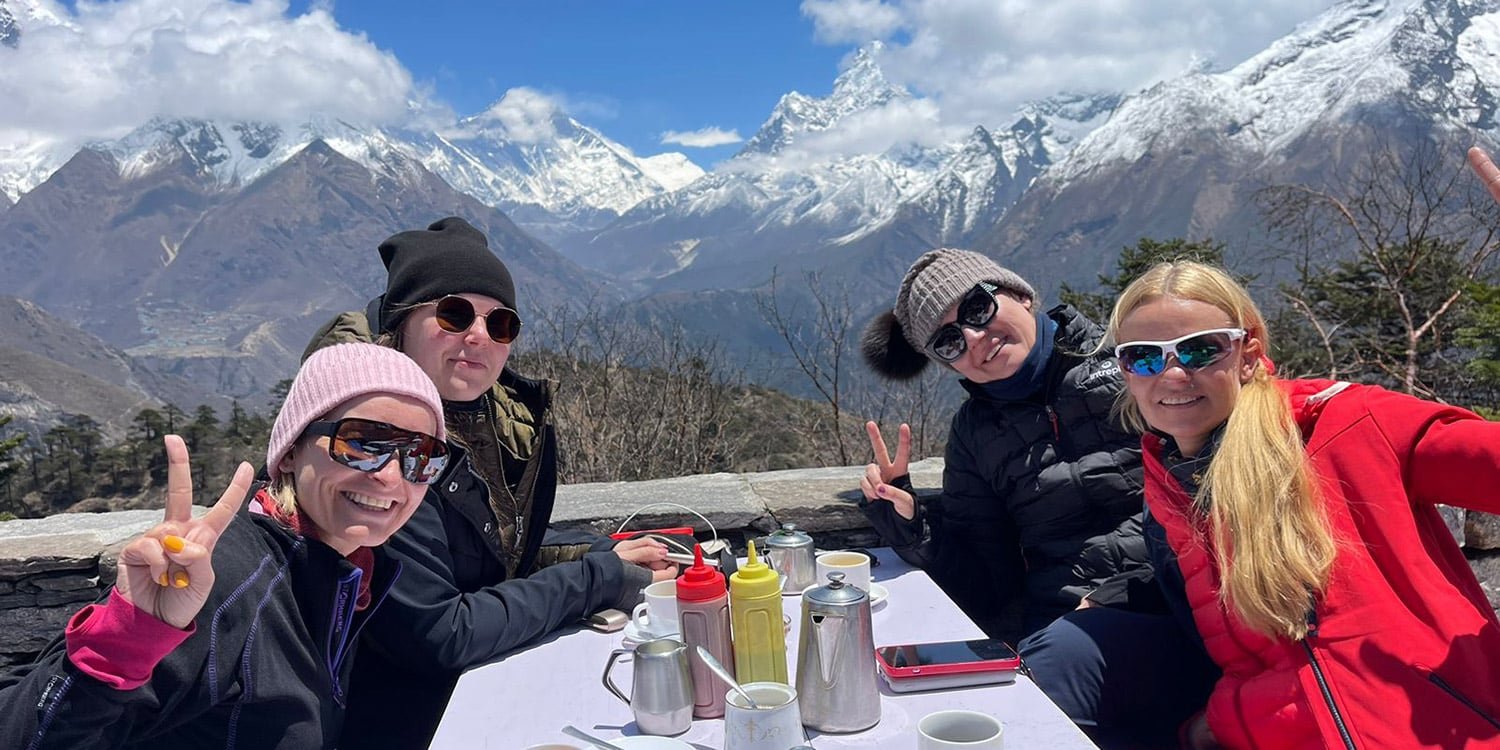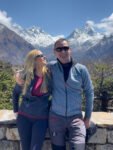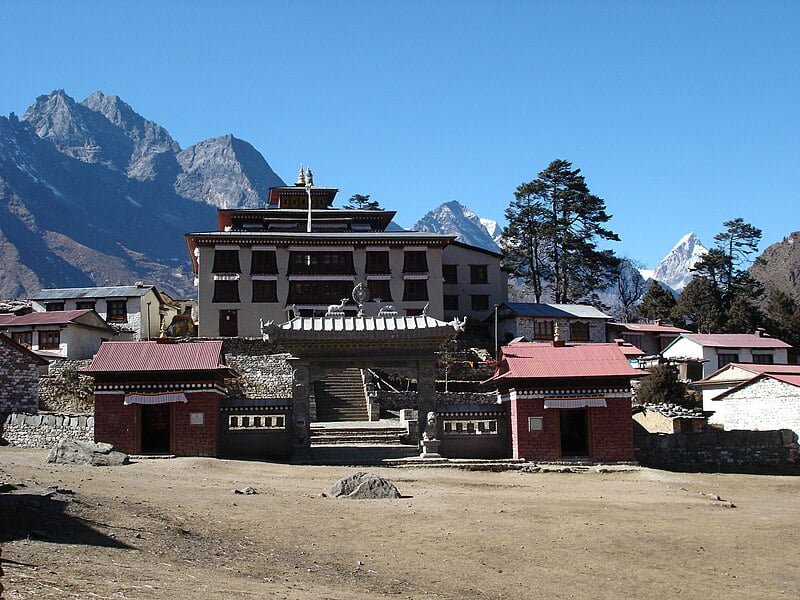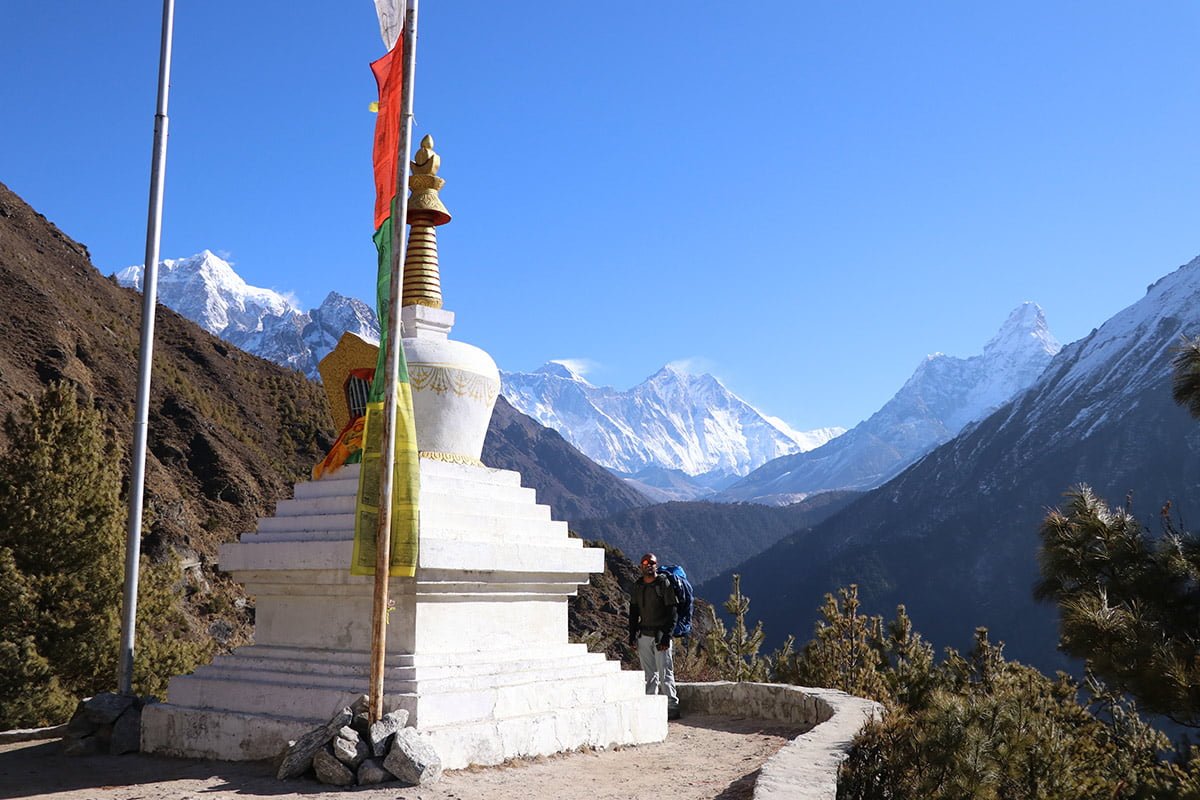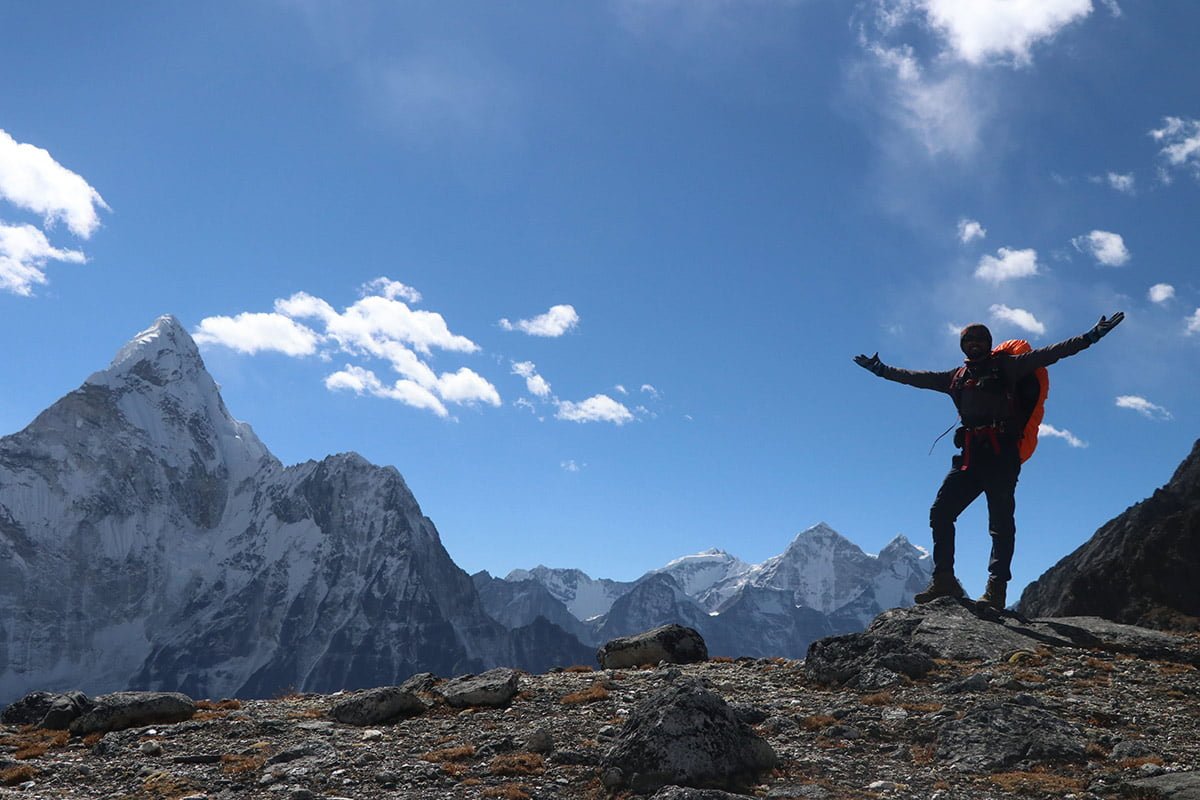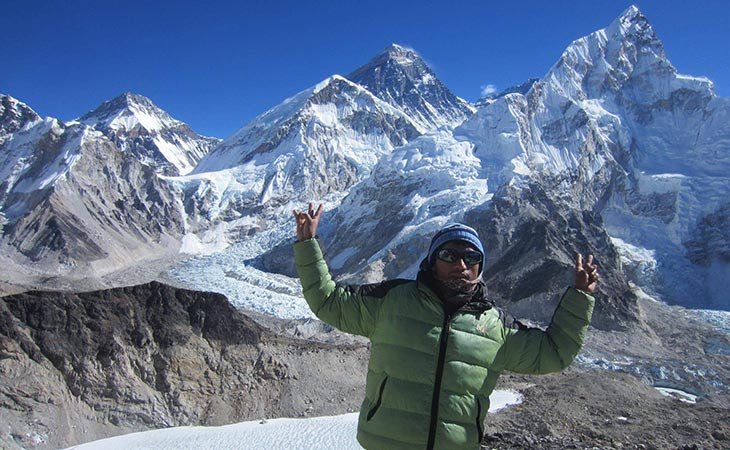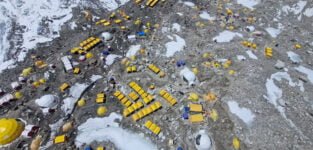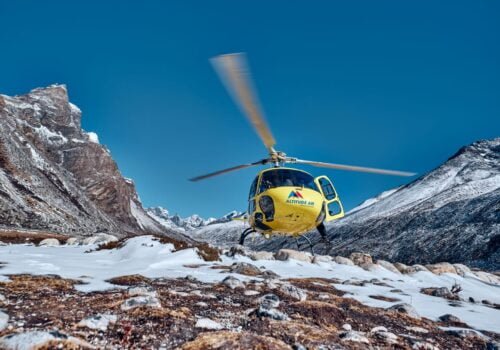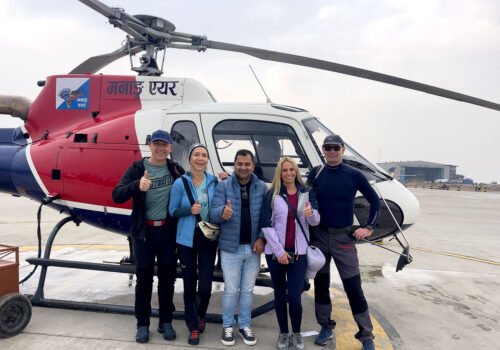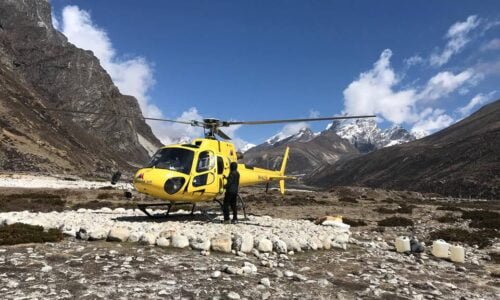Accommodation:
Best Lodges are accommodation types during the Everest Base Camp Premium Trek with Helicopter that provide comfortable staying facilities (beds, quilts, and pillows). Generally, bathrooms are inside the lodges except in the higher regions. Internet and phone networks are mostly stable in the lower regions. Everest Links is an internet provider, and there is Wi-Fi up to Gorakshep and Everest Base Camp.
Meals:
3-course full board meals with hot drinks (tea, coffee) are served during the Everest Base Camp Premium Trek with Helicopter, which are healthy and hygienic. Breakfast and dinner are served from the lodges, and lunch is served at the stopovers during the trek. It also includes one hot beverage and seasonal fruits. Trekkers can munch on bakery items, continental foods, and coffee in Namche. There are a variety of meals to choose from on the menu. (Nepali Dal-Bhat, steamed mo: mo, hot thukpa, soup, porridge, pancake, hot coffee, ginger honey tea, etc.) Please inform your food menu preference earlier if there is any.
Drinking water:
Drinking water during the Everest Base Camp Premium Trek with Helicopter is easily available. We provide purified drinking water during the trek, using either a water filter or purification tablets. Trekkers can also buy Mineral Water or boiled water at lodges according to their preference. Always carry a water bottle to minimize plastic pollution.
The transportation during the trek is as scheduled in the itinerary preferred by the travelers, which is as follows:
- Private vehicle transfer to/from the airport in Kathmandu
- Private vehicle ride to Ramechhap and transfer to/from the airport (only during April, May, October, and November months)
- Kathmandu- Lukla and Pheriche – Lukla – Kathmandu via shared Helicopter
The ideal seasons for the Everest Base Camp Premium Trek with Helicopter are Spring (Mar-May) and Autumn (Sep-Nov), as the weather and temperature are stable and offer incredible vistas. The winter and rainy seasons are riskier to trek due to the unstable weather and temperature, slippery trails, and limited availability of accommodation and services. There is a high chance of flight cancellations during the monsoon and winter. Still, it is possible to trek with proper planning and preparation.
Everest Base Camp Premium Trek with Helicopter requires three compulsory permits, i.e., Sagarmatha National Park (SNP), Khumbu Pasang Lhamu Rural Municipality, and Trekkers Information Management System (TIMS).
Khumbu Rural Municipality Permit
Foreigners- NPR 2000
SAARC- NPR 1000
Sagarmatha National Park (SNP)
Foreigners- NPR 3000
SAARC- NPR 1500
Trekkers Information Management System (TIMS)
Foreigners- NPR 2000/person
SAARC- NPR 1000/person
Diplomats/Foreign Officials & their families- NPR 500/person
Documents required
- Scanned copies of passport-sized photos and passports of each participant
- Travel Insurance
- Sagarmatha National Park Permit
- Khumbu Pasang Lhamu Rural Municipality Permit
- TIMS
Difficulty:
The Everest Base Camp Premium Trek with Helicopter is a moderate with a maximum elevation of 5,644.5 m. Walking daily for long hours on the steep ascending and descending rough trails and gaining altitude can be challenging for trekkers. This trek is suitable for trekkers with a medium level of physical fitness as it does not involve any technicality. Previous experience is preferable.
Fitness:
Everest Base Camp Premium Trek with Helicopter demands trekkers to have top-notch fitness levels. Trekkers should be physically and mentally sound to join this trek. With proper preparation, physical fitness, and acclimatization, it is achievable. Your familiarity with the mountainous terrain and previous trekking experience will be a plus point. Besides, maintaining good health and necessary check-ups before the trek proves to be fruitful. Some physical exercises and mental exercises to carry out before the treks are as follows:
Physical Exercises
Cardiovascular Exercises, Leg Strength Exercises, Core Strength Exercises, Upper Body Strengthening, Foot and ankle Strengthening, Flexibility and Stability Exercises, and Hiking Specific Training.
Mental Exercises
Meditation, Breathing Exercises, Stress Management, Solo Reflection, Focus and Concentration Improvement, Setting a goal, Practicing problem-solving skills, Staying Calm and Positive, Enjoying every activity, etc.
The maximum elevation during the Everest Base Camp Premium Trek with Helicopter is 5,644.5 m at Kalapatthar. Altitude sickness is common above 2500 m. As the elevation increases, there is a high chance of getting altitude sickness. Thus, acclimatization rest is essential to prevent it. Take an acclimatization rest as suggested in the itinerary during the trek.
Common symptoms of Altitude Sickness
Headache, nausea, dizziness, uneasiness, appetite, and sleep loss, and in extreme some can experience unconsciousness and hallucination.
Preventions for Altitude Sickness
- Take an acclimatization rest
- Inform the guide
- Climb slowly and gradually
- Keep yourself Hydrated
- Avoid alcohol and salty foods
- Know your body limit
- Take a complete rest and sleep
- Take medicine, and consult a guide
It acts as a safety net and is essential for trekking. We recommend getting travel insurance from a reputable company.
- Make sure that you are insured against cancellations, accidents, health, emergency evacuation, and loss, theft of, or damage to, baggage, and personal effects.
- In emergencies, we will arrange for a helicopter rescue, medical treatment, and aftercare for you. All these costs shall be borne by your travel insurance company.
The Everest Base Camp Premium Trek with Helicopter is moderate. Thus, only requires basic equipment and gear, which trekkers can hire or bring on their own.
Clothes: Windcheater jacket, Thermals, Insulating Down Jacket, Fleece, Long sleeve shirts, Gloves, Towels, Inner garments, Trekking pants, Trousers, Shorts, Socks, Raincoat, Balaclava, Bandana, Gaiters
Shoes: Camp shoes, a Pair of hiking boots, and Rubber sandals
Essential Documents: Passport, Travel Permits, Visa Photocopy, Passport size photos
Food: Light snacks, Energy bars, and drink mix
Accessories: Sunglasses, Hats/Caps, Sunscreen, Lip Balm, Water bottles, Pocket Knife, Solar chargers, Batteries, Head Lamps, Torch, Umbrella, Sewing kit, Water Purifying solution kits, reusable bags to deposit waste, separate clean/dirty clothes
Equipment: Warm Sleeping bags, a Map, Trekking poles, a Duffel bag
